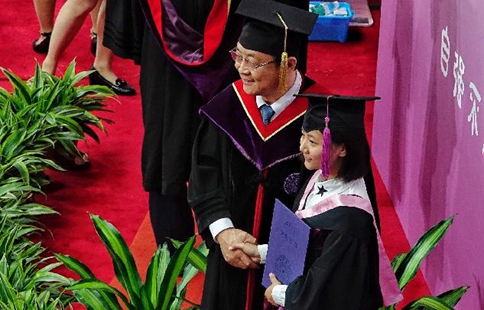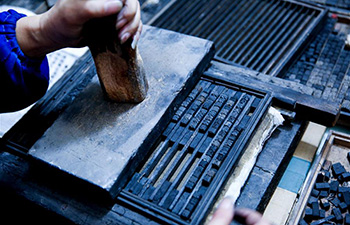by Raul Menchaca
VARADERO, Cuba, July 2 (Xinhua) -- Hidden beyond its beaches, sunshine and historical heritage, Cuba has a rich culinary tradition, as a result of a mixture of cultures, which it now seeks to use as a major tourist attraction.
"It will always be the number one priority to continue diversifying and raising the general quality...of services, in particular for gastronomy," said Cuba's Tourism Minister Manuel Marrero at the opening of the 9th Varadero Gourmet Festival this week, which was attended by delegates from 16 countries.
In order to carry out this goal, Marrero asked each chef and bartender to add their personal touch to any food or cocktails they might prepare.
"Cuba is already a reference, a country where people can go to eat. I believe that this is also very important," said Marrero.
"The secret of the success of Cuban gastronomy lies in the mix of cultural ingredients provided by each nationality when they arrived on the island," international chef Jorge Luis Mendez told Xinhua.
"It has been enriched over the years with different contributions. Africans, Chinese, and even Eastern Europeans have their presence felt in our food," he added.
Mendez has published several books on local gastronomy and now works at the Ministry of Tourism, where he closely follows the evolution of Cuban cuisine.
"We have managed to preserve Cuba's authentic, traditional cuisine," says the expert, who believes that food "allows people to express who they are."
However, Cuba plans to make its local food industry more efficient as the island imports some 2 billion U.S. dollars of food annually, a burden that the authorities are seeking to reduce.
"We play a major role in supplying the tourism sector, which is considered a national engine of growth," said the director of agricultural procurement in Camaguey province. His company supplies about 70 products to hotel chains, especially those located in the resort of Varadero.
"Tourists like Cuban cuisine because of the creativity we add in the elaboration and variety of dishes," said chef Pedro Manuel Serrano, who has been working at a restaurant in Varadero for 27 years.
"The most liked dishes are those based on vegetables, natural ingredients," said the experienced chef.
Efforts to improve Cuban gastronomy have also found allies abroad. That is why Italian Dario Balzanelli, general manager of Crisci International, is confident that his stoves, electric ovens and mixers will be present in popular Cuban restaurants.
But Balzanelli, whose firm came to the island last November, also hopes to sell canned food to bring Mediterranean cuisine closer to the Caribbean.
"Our ambition is to enter the Cuban market and bring our culinary culture," said Balzanelli.
Cuba expects to receive 4.2 million tourists this year, a figure that would surpass the 4,035,577 visitors welcomed in 2016, when arrivals grew by 14.5 percent.

















